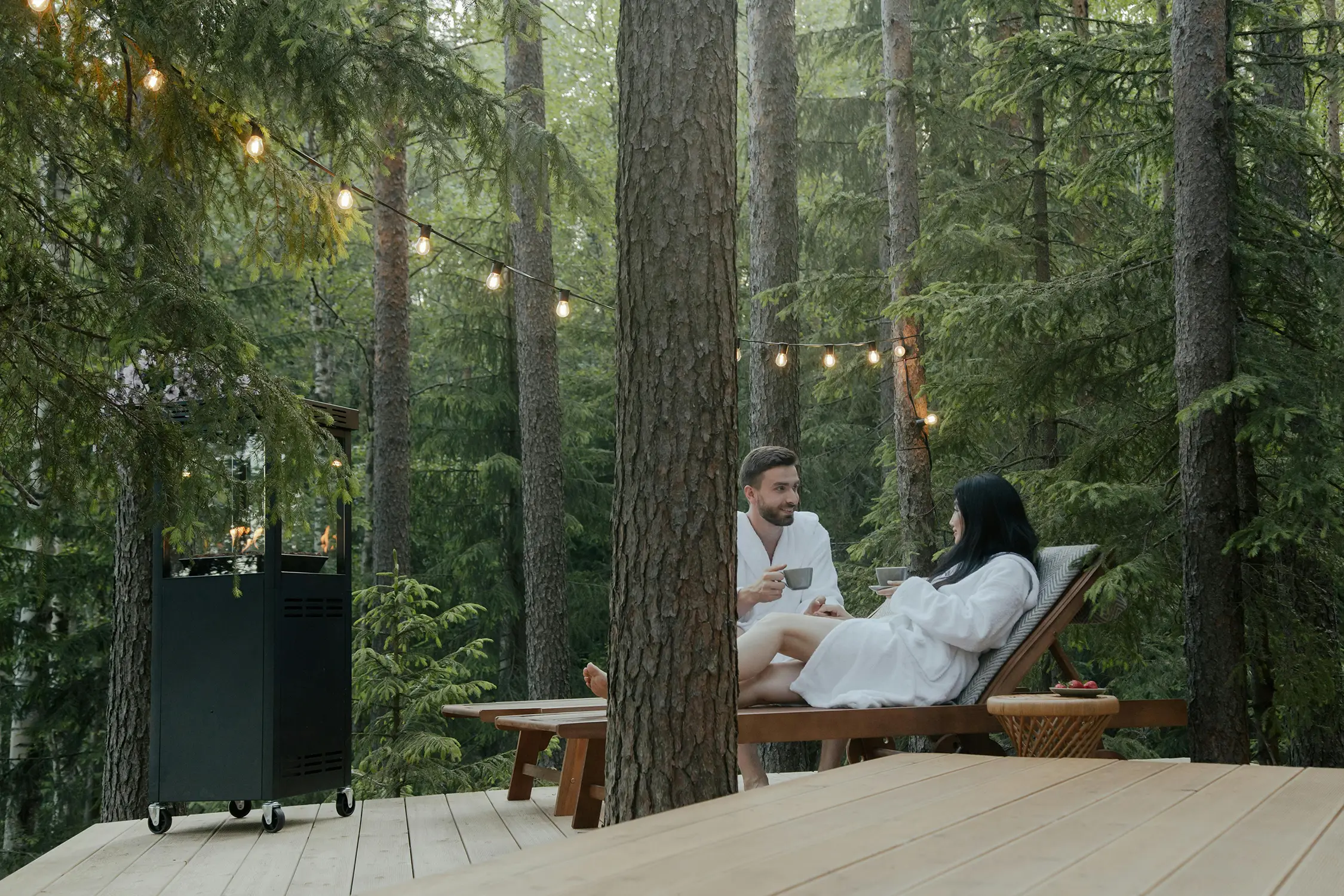Weddings are meant to be joyful, emotional, and sometimes — let’s be honest — they end up being completely overwhelming. Between vendors, family dynamics, budget balance, it’s easy to let stress pile up.
And no matter how perfectly you plan, if you arrive at your big day all tense and depleted, it’ll show — in your face, your posture, your energy.
That’s why taking some time for intentional relaxation in the weeks leading up to your wedding isn’t indulgent — it’s essential.
Here are some meaningful ways to calm that chaos and feel truly present on the day that matters most.
.webp)
Book a Chiropractic Session to Realign and Release
You might not immediately think “chiropractor” when you think about wedding prep — but hear this. Stress doesn’t just live in your mind. It often settles into your body - your shoulders tighten, your neck starts to ache, and your lower back may carry more pressure than usual — especially if you’re spending long hours hunched over spreadsheets and guest lists.
A chiro session can help relieve that tension in a real physical way. Doing gentle adjustments and realignment, a licensed chiropractor can help reduce muscular tightness, improve circulation, and enhance your sense of calm. The added bonus? Better posture, which makes a difference in how you stand, walk, and photograph on your wedding day.
Some couples even schedule a joint session—because yes, your partner is probably stressed too.
.webp)
Embrace Slow Mornings Even if It's Once a Week
Slow mornings are small acts of resistance and restoration. One or two days a week, carve out a couple of hours in the morning just for you. No errands. No phone scrolling. No vendor emails.
Make a ritual of it: stretch, make tea, take a walk without your earbuds in, read something unrelated to weddings. Light a candle. Water your plants. Lie down again if you want to. These are not just some throwaway hours. They are quiet recalibrations. This tells your nervous system that, even in the middle of a whirlwind, you still belong to yourself.
These slow starts give your brain a break. They have a ripple effect - when you re-enter the busyness, you do it with a little more clarity and with a little less pressure.
.webp)
Try a Digital Detox Weekend
The group chat notifications. The Instagram comparisons. The Pinterest rabbit holes. It all adds up even if you don’t realize it in the moment. Taking a digital detox — even for just a weekend — can make a huge difference in your stress levels and sleep quality.
When you disconnect from your phone or laptop it doesn’t mean you'll fall behind on planning. It means you’ll give your attention back to the present. Use that time to be with someone you love or just with yourself. Take a day trip. Bake something. Catch up on sleep. Move slowly on purpose.
Depending on the situation, you can also start smaller - log out of social media, mute your notifications, and limit your screen time. It’s not about restriction — it’s about those boundaries that protect your peace.
.webp)
Consider a Wellness Day (Not Just a Spa Day)
Sure, a massage and a facial sound amazing—and they can absolutely be part of your de-stress strategy. But consider expanding the idea of a spa day into a true wellness day.
Think of a full day that mixes multiple forms of care: maybe a morning yoga or barre class, followed by a float tank session, a chiropractor appointment, lunch at your favorite spot, and then a long walk or time in nature. The idea is to recharge your whole system—not just the surface.
You don’t need to spend a fortune either. Even structuring a DIY wellness day at home—complete with a bath, a meditation app, your favorite smoothie, and an afternoon nap—can work wonders. The key is intention. You’re not just killing time, you’re tending to your nervous system before one of the most significant days of your life.
.webp)
Spend Time in Nature — Without a To-Do List
Fresh air changes things. Time in nature helps reset a busy brain. It’s also one of the fastest ways to shift out of “planning mode” and come back into your body.
What matters is the lack of expectation. You’re not going outside to check off another task—you’re going to breathe, to wander, to remind yourself that the world is bigger than cake tastings and RSVP deadlines.
Bonus you get - being outdoors naturally lowers cortisol (your stress hormone), improves mood, focus, and sleep. That’s something no wedding app can offer.
.webp)
Practice Saying “No” Without Guilt
This might be one of the most powerful stress-reducing tools you can carry into wedding planning—and into marriage, for that matter.
Everyone will have their opinions. Your friends, family, coworkers, acquaintances on social media. You’ll always get some advice you didn’t ask for or requests that don’t fit your vision and pressure to people-please in ways that drain your energy. Protect your peace by setting a boundary and stick to it.
You don’t need to justify your “no.” You can simply say that it doesn't work you or you can thank them for suggestion and say you've got it all figured out. Learning to gracefully say no isn’t rude at all. Call it self-respect.
And every time you honor that boundary, you lower your internal stress—even if just by a few degrees.
.webp)
Schedule a Night Off From “Wedding Talk”
This one sounds small, but it’s a game-changer. If you’re planning with a partner, make it a point—once a week or so—to have a night where wedding planning is off-limits.
No vendor updates. No budget talks. No timeline stress.
Let Go of the Idea That Calm Will "Just Happen"
Most of us assume we’ll relax once everything is done. Once the checklist is finished. Once the relatives are all on the same page. Once the seating chart is locked. But the truth? Calm rarely just shows up. You have to make room for it.
De-stressing doesn’t come after the work — it’s one good chunk of the work. It’s the thing that allows you to show up to the planning process with your full self — clear-headed, emotionally present, and connected to what this whole thing is about.
So instead of waiting for peace to arrive after the fact, start creating it now. In your routines. In your boundaries. In your breath.
.webp)
Slowing Down Doesn’t Make You Fall Behind
Many couples carry that quiet fear while planning a wedding — that if they stop moving, even for a second, they’ll lose momentum or fall behind.
In reality, if you slow down that doesn’t stall your progress — it strengthens it. It allows you to check in with yourself and to move forward with clarity instead of chaos.
The most memorable weddings aren’t just the ones with perfect lighting or curated tablescapes. They’re the ones where the couple was truly there — calm, present, and connected.
And presence? That starts with rest.






.webp)
.webp)
.webp)
.webp)
.webp)
.webp)
.webp)
.webp)





